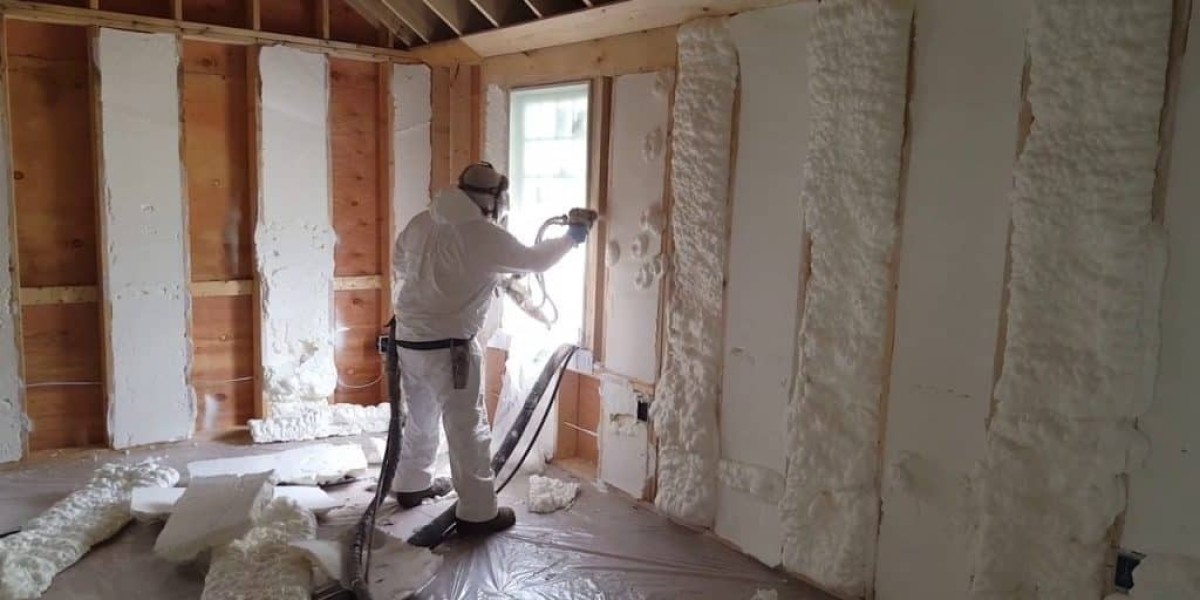When considering spray foam insulation for your home or business in Las Vegas, Nevada, it’s crucial to understand the differences between closed-cell and open-cell spray foam. Both types offer unique benefits, and choosing the right one depends on various factors including your specific insulation needs and budget. Supreme Spray Foam LV is here to guide you through the decision-making process with our range of services including attic insulation, wall insulation, and commercial spray foam insulation.
Understanding Closed-Cell Spray Foam
Closed-cell spray foam insulation is known for its dense, rigid structure. Each cell in this type of foam is completely closed, creating a barrier that provides excellent insulation and high resistance to moisture. Here are some key benefits:
High Insulating Value: Closed-cell foam has a higher R-value per inch compared to open-cell foam, making it an excellent choice for areas that require a high level of insulation.
Moisture Barrier: Its density helps in preventing moisture from penetrating, which is particularly useful in areas prone to dampness or high humidity.
Structural Strength: The rigidity of closed-cell foam can add structural support to walls and roofs, making it a durable option for long-term use.
Understanding Open-Cell Spray Foam
Open-cell spray foam insulation has a more flexible, softer structure with cells that are not completely closed. This type of foam expands more than closed-cell foam and is known for its ease of installation and excellent air-sealing properties. Here’s what makes open-cell foam a viable option:
Cost-Effective: Open-cell foam is generally less expensive than closed-cell foam, which can be a more budget-friendly option for large areas.
Better Air Seal: Its ability to expand and fill gaps makes it highly effective at sealing air leaks, which can improve overall energy efficiency.
Sound Proofing: The open-cell structure provides good sound-dampening qualities, making it a good choice for reducing noise between rooms.
Key Considerations for Choosing Between Closed-Cell and Open-Cell Spray Foam
When deciding between closed-cell and open-cell spray foam, consider the following factors:
Insulation Needs: If your primary concern is achieving a high R-value and providing a moisture barrier, closed-cell spray foam might be the better option. For general insulation and air sealing, open-cell foam can be more suitable.
Budget: Closed-cell foam tends to be more expensive, so if budget constraints are a concern, open-cell foam might be the more cost-effective choice.
Application Area: For areas prone to moisture or requiring additional structural support, closed-cell foam offers added benefits. For interior spaces where air sealing and soundproofing are priorities, open-cell foam is a good option.
Supreme Spray Foam LV’s Services
They offer a comprehensive range of insulation services to meet your needs, including attic insulation, wall insulation, and both residential and commercial spray foam insulation. Their expertise extends to various types of spray foam insulation, ensuring that you receive the most appropriate solution for your property.
Attic Insulation: Essential for maintaining energy efficiency and comfort in your home, attic insulation with either closed-cell or open-cell spray foam can help manage temperature and reduce energy costs.
Wall Insulation: Proper wall insulation is crucial for controlling indoor temperatures and improving energy efficiency. Both closed-cell and open-cell options are available to suit different needs.
Commercial Spray Foam Insulation: For businesses in Las Vegas, they provide tailored insulation solutions to improve building efficiency and reduce operational costs.
Location-Specific Benefits
In Las Vegas, Nevada, and surrounding areas like Paradise, Henderson, and Spring Valley, the climate plays a significant role in determining the best type of insulation. The high temperatures and occasional moisture can affect insulation performance. Closed-cell spray foam’s resistance to moisture and higher R-value can be particularly advantageous in this climate. On the other hand, open-cell foam’s air-sealing properties can enhance comfort in residential and commercial properties alike.
FAQ
Q: What is the main difference between closed-cell and open-cell spray foam?
A: The main difference lies in the structure of the foam. Closed-cell spray foam has a dense, rigid structure with closed cells, providing a high R-value and excellent moisture resistance. Open-cell spray foam has a softer, more flexible structure with open cells, offering good air sealing and soundproofing at a lower cost.
Q: Can I use closed-cell spray foam for attic insulation?
A: Yes, closed-cell spray foam is a great choice for attic insulation due to its high R-value and moisture resistance. It helps keep the attic space well-insulated and prevents heat loss.
Q: Is open-cell spray foam suitable for commercial buildings?
A: Open-cell spray foam can be used in commercial buildings, especially where air sealing and soundproofing are priorities. However, for areas with high moisture or where additional structural support is needed, closed-cell spray foam might be more appropriate.
Q: How do I decide between closed-cell and open-cell spray foam for my home?
A: Consider your specific insulation needs, budget, and the characteristics of the area to be insulated. Closed-cell foam offers higher insulation value and moisture resistance, while open-cell foam is more cost-effective and provides good air sealing.
Conclusion
Choosing the right type of spray foam insulation is crucial for optimizing energy efficiency and comfort in your property. Whether you opt for closed-cell spray foam for its superior insulation and moisture resistance or open-cell foam for its cost-effectiveness and air-sealing properties, Supreme Spray Foam LV in Las Vegas, Nevada is here to assist you. For professional advice and high-quality insulation services, including attic insulation, wall insulation, and commercial spray foam solutions, contact them at (702) 904-9895. Their team will help you find the best solution for your needs and ensure a successful installation.










